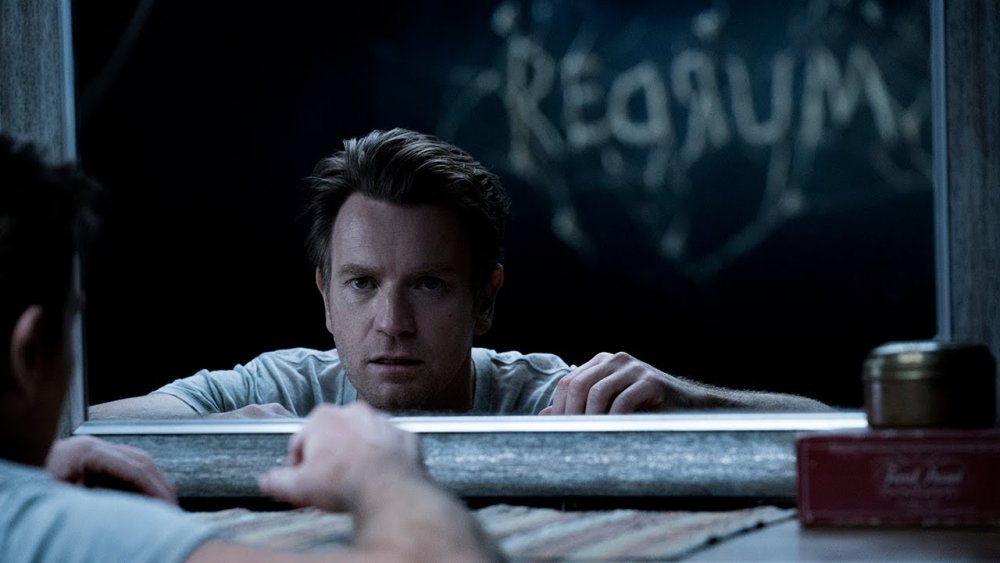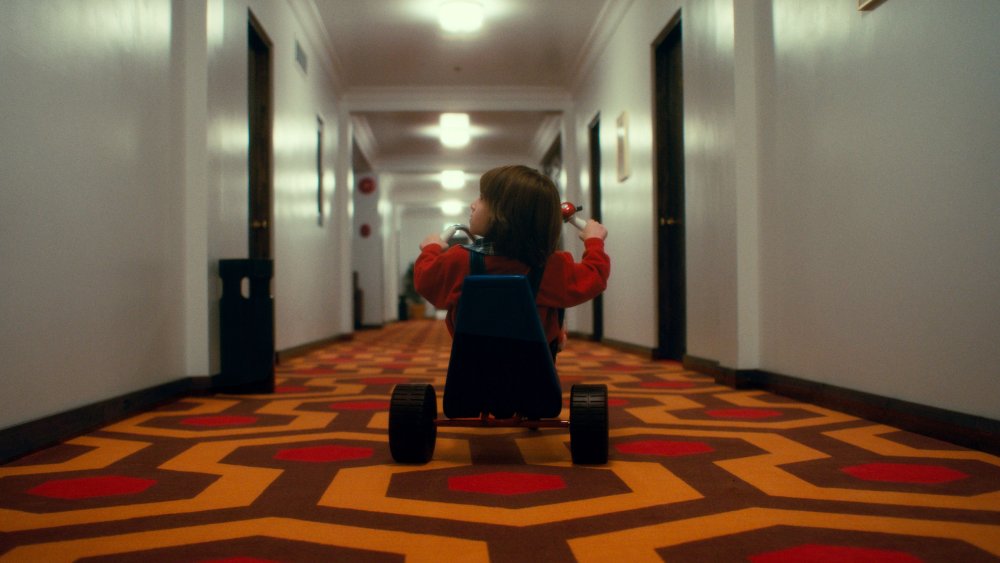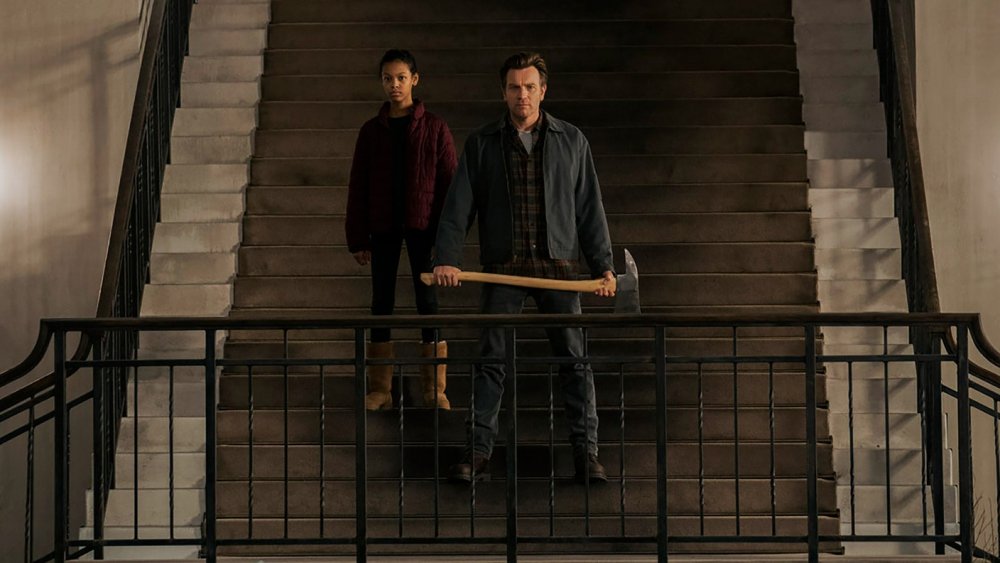Why Doctor Sleep Is Currently Taking Over The Internet
Doctor Sleep, the sequel to The Shining, may not have found much success during its theatrical run in November 2019 (the film only earned $72 million worldwide), but people are talking about it a lot right now. As of late June 2020, Doctor Sleep is available both on HBO Max and the HBO network proper — and the response to the film's availability is substantial.
On June 27, 2020, Doctor Sleep began trending on Twitter. It seems as though the lovefest kicked off with a simple tweet from Doctor Sleep writer-director Mike Flanagan, saying, "DOCTOR SLEEP is now available on @hbomax, they've got the both the theatrical cut and the Director's Cut. Hope you enjoy!"
The responses to Flanagan's tweets came in right away, from fans both famous and not. User @VampwolfWarrior tweeted, "Can we talk about how Doctor Sleep managed to be not only a great movie, but also a good adaptation of the book despite having to make up for Kubrick messing the story up, AND allowed fans of the Shining book and movie able to understand and love it?"
That tweet gets to the heart of at least part of why Doctor Sleep is earning so much praise now that people can watch it easily.
Doctor Sleep is a sequel to The Shining, both the film and the novel
Flanagan's Doctor Sleep is an adaptation of the 2013 Stephen King novel of the same name. King's novel is a sequel to his 1977 book The Shining, but it can't really be called a sequel to the classic 1980 Stanley Kubrick film. In fact, despite the enormous success of Kubrick's take on King's work, King himself is not a fan of the adaptation. In an interview with Deadline, for example, King called Kubrick's take on The Shining "a big, beautiful Cadillac with no engine inside it."
Without giving it away, there are significant differences between King and Kubrick's versions of The Shining, but the endings, especially, are very different. Flanagan, as a storyteller, found himself in the position of creating a Doctor Sleep film that would be both satisfying to its author and fans of Kubrick's movie — not an easy thing to pull off.
If Stephen King's opinion is anything to go on, Flanagan's Doctor Sleep is a success at bridging the gap between novel and film. In an interview with Entertainment Weekly, King said of Flanagan's script, "Everything that I ever disliked about the Kubrick version of The Shining is redeemed for me here." One of Flanagan's most impressive choices was to bring the original ending of the novel The Shining and adapt it to his film version of Doctor Sleep. It's thoughtful moves like that which can draw fans of both film and book to Doctor Sleep.
Mike Flanagan has proven to be a master of emotional horror
If you've heard Flanagan's name before, it's likely because of his success with the Netflix adaptation of the Shirley Jackson story The Haunting of Hill House. Much like Doctor Sleep, Flanagan chose to take that adaptation in a different direction from the source material — new characters, a new story, and a new outlook on the titular setting.
Most ghost stories tend to be psychological explorations of what it means to see (or even be) a ghost, and Flanagan takes psychological horror to a distinctly emotional place. Each sibling in the The Haunting of Hill House represents a different phase of grief. Flanagan's take on Doctor Sleep, likewise, is an exploration of the emotional impact of generational trauma and addiction.
In The Shining, husband and father Jack Torrance, is on the run from his alcohol addiction. A few years before the story begins and the Torrances take their trip to the Overlook Hotel, Jack broke the arm of his son, Danny (Danny Lloyd). In Doctor Sleep, an adult Danny becomes an alcoholic himself, growing into a violent man who would steal money from a newborn's sleeping mother.
There's a scene in Doctor Sleep in which an eight-years-sober Danny stands in front of his AA group and says of his father, "The drinking and the temper and the anger, those things in me were his and they were all I could know of him." And then Danny talks about how getting sober is a way of seeing his father differently, that Jack Torrance, before it all went wrong, dreamed of standing where Danny is — clean and sober. Danny says, "Thank you for both of us — this is for Jack Torrance." It's a profound scene that speaks to a wound that a lot of people never heal from. Wounds like that are like ghosts that haunt us and we cannot easily escape.
It's rare that a movie can be as emotionally honest as Doctor Sleep, and considering that a lot of us have more free time on our hands than we'd like these days, there's time for personal emotional honesty that isn't always fun or easy. So it's fair to say that part of Doctor Sleep's success is more than availability or good word of mouth — it's that Doctor Sleep helps us learn how to heal the wounds that we've lived with (and our parents before us lived with) for a lifetime. Doctor Sleep helps us exorcise or own ghosts.


